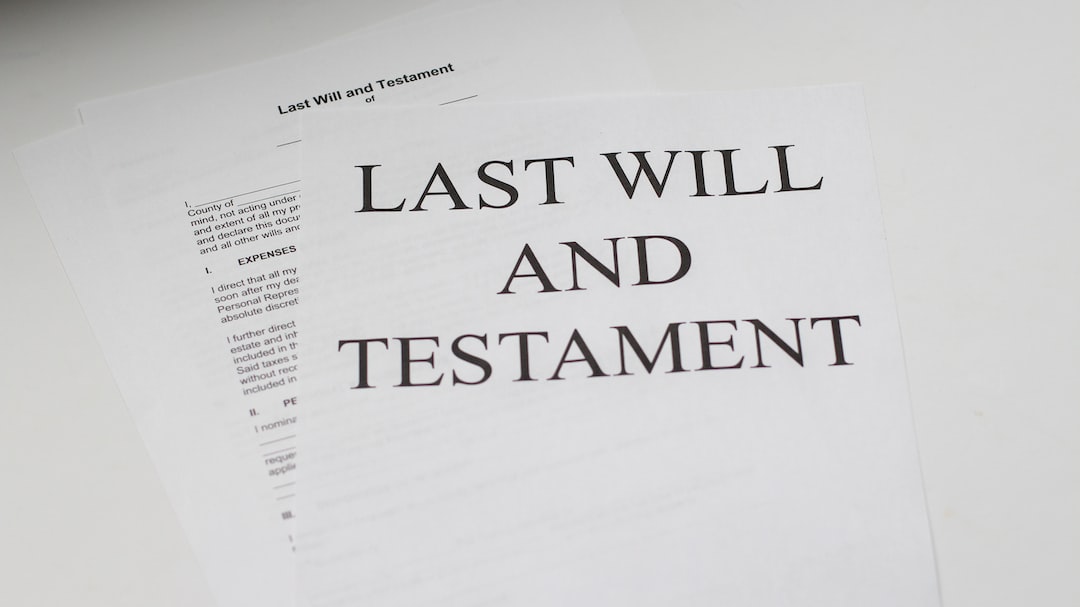The Importance of Estate Planning: Protecting Your Assets and Loved Ones
Estate planning is a critical process that should not be overlooked or delayed. It is a proactive approach to ensure that your assets are protected and distributed according to your wishes after you pass away. By developing a comprehensive estate plan, you can also safeguard your loved ones from unnecessary legal complications and financial burdens during an already difficult time. In this blog post, we will explore the importance of estate planning and the various ways it can benefit you and your family.
Protecting Your Assets:
One of the primary purposes of estate planning is to protect your assets from unnecessary taxes, creditor claims, and other potential threats. Through various legal instruments such as trusts and wills, you can minimize the estate taxes that your beneficiaries might have to pay. Moreover, by planning ahead, you can ensure that your assets are transferred smoothly and efficiently to your loved ones, without the need for costly and time-consuming probate proceedings.
Preserving Your Legacy:
Estate planning goes beyond merely distributing your assets. It allows you to ensure that your legacy endures through future generations. By leaving clear instructions about how your assets should be used or invested, you can foster family traditions, philanthropic causes, or educational pursuits that are important to you. This aspect of estate planning enables you to leave a lasting impact on the people and causes you care about, even after you are gone.
Providing for Your Loved Ones:
One of the most significant reasons to engage in estate planning is to provide for your loved ones after your passing. Without a proper estate plan, your assets might not be distributed as you intend, potentially leaving your family in a difficult financial situation. By carefully outlining your wishes in a will or trust, you can ensure that your children, spouse, or other dependents are taken care of, even if you are no longer there to provide for them.
Minimizing Family Conflicts:
The absence of a clearly defined estate plan can lead to family disputes and conflicts. Inheritance can bring out underlying tensions and disagreements, and without proper guidance, families can find themselves in long and bitter legal battles. By formulating and communicating your estate plan to your family, you can minimize the chances of such conflicts arising. Your loved ones will have a clear understanding of your intentions, reducing the potential for misunderstandings and contention.
Planning for Incapacity:
Estate planning is not just about what happens after you pass away. It also includes planning for situations where you may become incapacitated and unable to make important decisions regarding your health or finances. Through documents like a durable power of attorney or a healthcare proxy, you can appoint someone you trust to act on your behalf and make critical decisions if you become unable to do so. This ensures that your wishes are respected and that your affairs are managed in accordance with your values and beliefs.
Peace of Mind:
Perhaps one of the most invaluable benefits of estate planning is the peace of mind it brings. Knowing that your assets are protected, your loved ones will be cared for, and your wishes will be honored can decrease anxiety and uncertainty about the future. Estate planning allows you to take control of what happens to you, your assets, and your family, instilling a sense of security and comfort.
In conclusion, estate planning is of utmost importance for protecting your assets and loved ones. By engaging in this process, you can protect your assets from unnecessary taxes and creditor claims, preserve your legacy, provide for your family, minimize family conflicts, plan for incapacity, and ultimately gain peace of mind. Regardless of your age or the size of your estate, developing an estate plan should be a priority to ensure the well-being and financial security of your loved ones. Don’t delay, start planning today!

